Ökonomische Unterschiede zwischen Ost- und Westdeutschland
Die Gruppe untersucht mit innovativen Methoden, warum die Wirtschaft in Ostdeutschland bis heute hinter der westdeutschen zurückbleibt und welche Rolle die Treuhandanstalt dabei spielt.
In ihrem Hauptprojekt untersucht die Gruppe den Prozess der Privatisierung der DDR-Wirtschaft durch die Treuhandanstalt. Inwiefern spielte die Qualifizierung der ausgewählten Managerinnen und Manager und deren Netzwerk zu anderen Entscheidern eine Rolle? In Form eines Benchmark-Modells soll auf Basis von Mikrodaten (Firmen, Manager, Patente, Ideen) herausgefunden werden, wie die ostdeutschen Betriebe heute daständen, wenn sie ausschließlich von talentierten Unternehmerpersönlichkeiten übernommen worden wären. Das zweite Projekt analysiert, warum besonders innovative Firmen seltener in Ost- als in Westdeutschland entstehen und welche Rolle Migrantinnen und Migranten für das Wirtschaftswachstum und die Wissensproduktion in Deutschland spielen. Das dritte Projekt verwendet CompNet-Daten, um nach Gründen für die schwindende Produktivitätsdynamik in Europa zu suchen.
Forschungscluster
Wirtschaftliche Dynamik und StabilitätIhr Kontakt

- Abteilung Strukturwandel und Produktivität
Referierte Publikationen
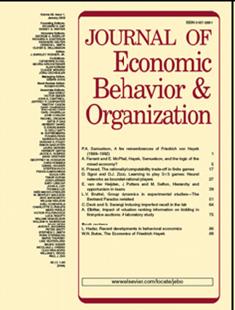
Hollywood, Wall Street, and Mistrusting Individual Investors
in: Journal of Economic Behavior and Organization, June 2023
Abstract
Individual investors reduce their trading activity in financial markets after the release of negatively biased Hollywood movies related to financial markets. These movies regularly depict financial markets and professionals active in them as marked by greed and corruption (Lichter et al. 1997). This decline in trading activity at the extensive margin comes together with depressed investor sentiment marked by higher likelihoods and volumes of selling than of buying transactions by those investors still active. Their avoidance of investing in and tendency to trade out of stocks related to companies in the financial industry, as well as their shift from actively managed mutual funds to passive vehicles (ETFs), provide evidence for the deterioration of investors’ trust in the financial industry and its managers. This channel is in line with existing literature on subjective beliefs in investment decisions and the impact of biased media coverage, such as the negative depiction of financial markets, shareholders, and managers in Hollywood movies.
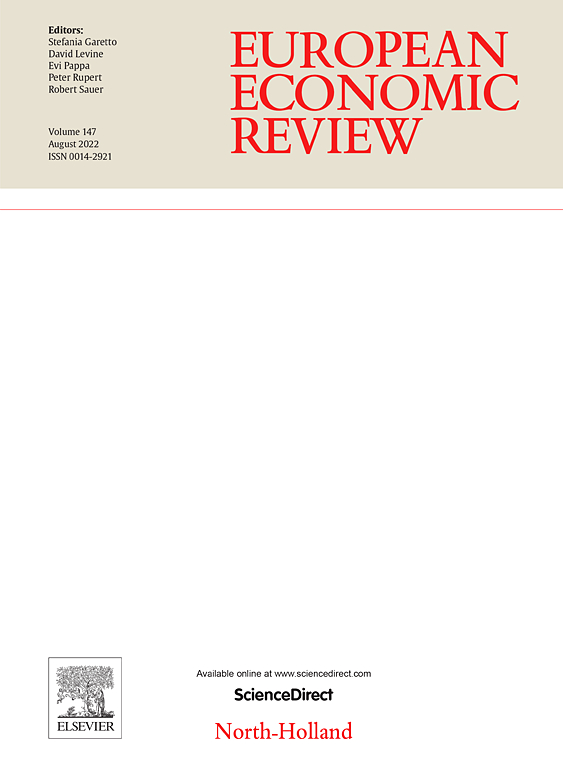
Global Banking: Endogenous Competition and Risk Taking
in: European Economic Review, April 2021
Abstract
When banks expand abroad, their riskiness decreases if foreign expansion happens in destination countries that are more competitive than their origin countries. We reach this conclusion in three steps. First, we develop a flexible dynamic model of global banking with endogenous competition and endogenous risk-taking. Second, we calibrate and simulate the model to generate empirically relevant predictions. Third, we validate these predictions by testing them on an original dataset covering the activities of the 15 European global systemically important banks (G-SIBs). Our results hold across alternative measures of individual and systemic bank risk.
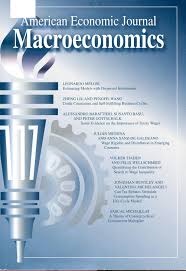
Ten Facts on Declining Business Dynamism and Lessons from Endogenous Growth Theory
in: American Economic Journal: Macroeconomics, Nr. 1, 2021
Abstract
In this paper, we review the literature on declining business dynamism and its implications in the United States and propose a unifying theory to analyze the symptoms and the potential causes of this decline. We first highlight 10 pronounced stylized facts related to declining business dynamism documented in the literature and discuss some of the existing attempts to explain them. We then describe a theoretical framework of endogenous markups, innovation, and competition that can potentially speak to all of these facts jointly. We next explore some theoretical predictions of this framework, which are shaped by two interacting forces: a composition effect that determines the market concentration and an incentive effect that determines how firms respond to a given concentration in the economy. The results highlight that a decline in knowledge diffusion between frontier and laggard firms could be a significant driver of empirical trends observed in the data. This study emphasizes the potential of growth theory for the analysis of factors behind declining business dynamism and the need for further investigation in this direction.
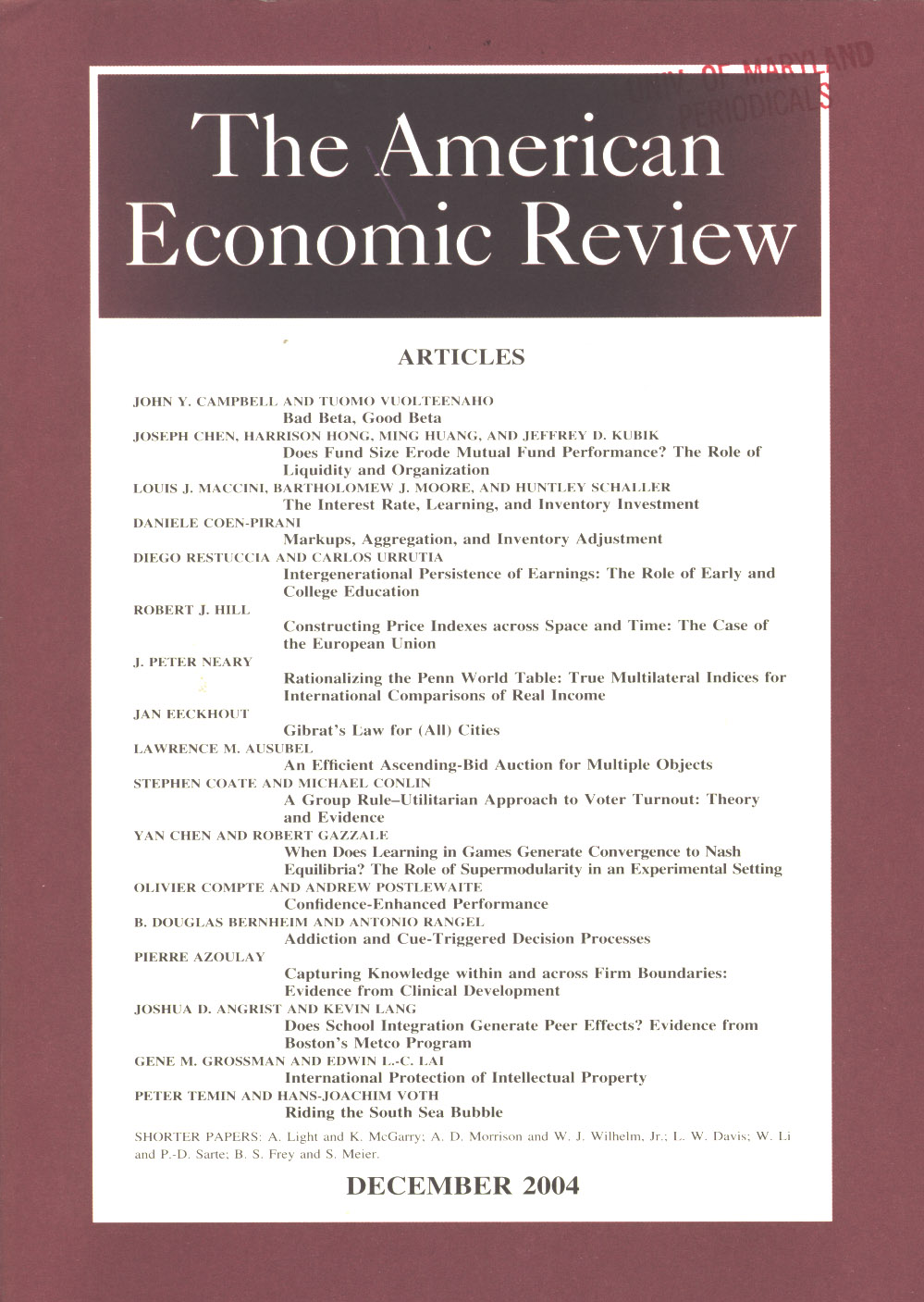
Lack of Selection and Limits to Delegation: Firm Dynamics in Developing Countries
in: American Economic Review, Nr. 1, 2021
Abstract
Delegating managerial tasks is essential for firm growth. Most firms in developing countries, however, do not hire outside managers but instead rely on family members. In this paper, we ask if this lack of managerial delegation can explain why firms in poor countries are small and whether it has important aggregate consequences. We construct a model of firm growth where entrepreneurs have a fixed time endowment to run their daily operations. As firms grow large, the need to hire outside managers increases. Firms’ willingness to expand therefore depends on the ease with which delegation can take place. We calibrate the model to plant-level data from the U.S. and India. We identify the key parameters of our theory by targeting the experimental evidence on the effect of managerial practices on firm performance from Bloom et al. (2013). We find that inefficiencies in the delegation environment account for 11% of the income per capita difference between the U.S. and India. They also contribute to the small size of Indian producers, but would cause substantially more harm for U.S. firms. The reason is that U.S. firms are larger on average and managerial delegation is especially valuable for large firms, thus making delegation efficiency and other factors affecting firm growth complements.

Does Low-pay Persist across Different Regimes? Evidence from the German Unification
in: Economics of Transition and Institutional Change, Nr. 3, 2020
Abstract
Using German administrative data, we study across-regime low-pay persistence in the context of an economic transformation process. We first show that individuals' initial allocation to the post-unification low-wage sector was close to random in terms of market-regime unobservables. Consistent with a weak connection between individuals' true productivity and their pre-unification low-wage status, the extent of across-regime state dependence is found to be small and appears to vanish over time. For males, across-regime state dependence is most pronounced among the medium- and high-skilled, suggesting the depreciation of human capital as an explanation.
Arbeitspapiere
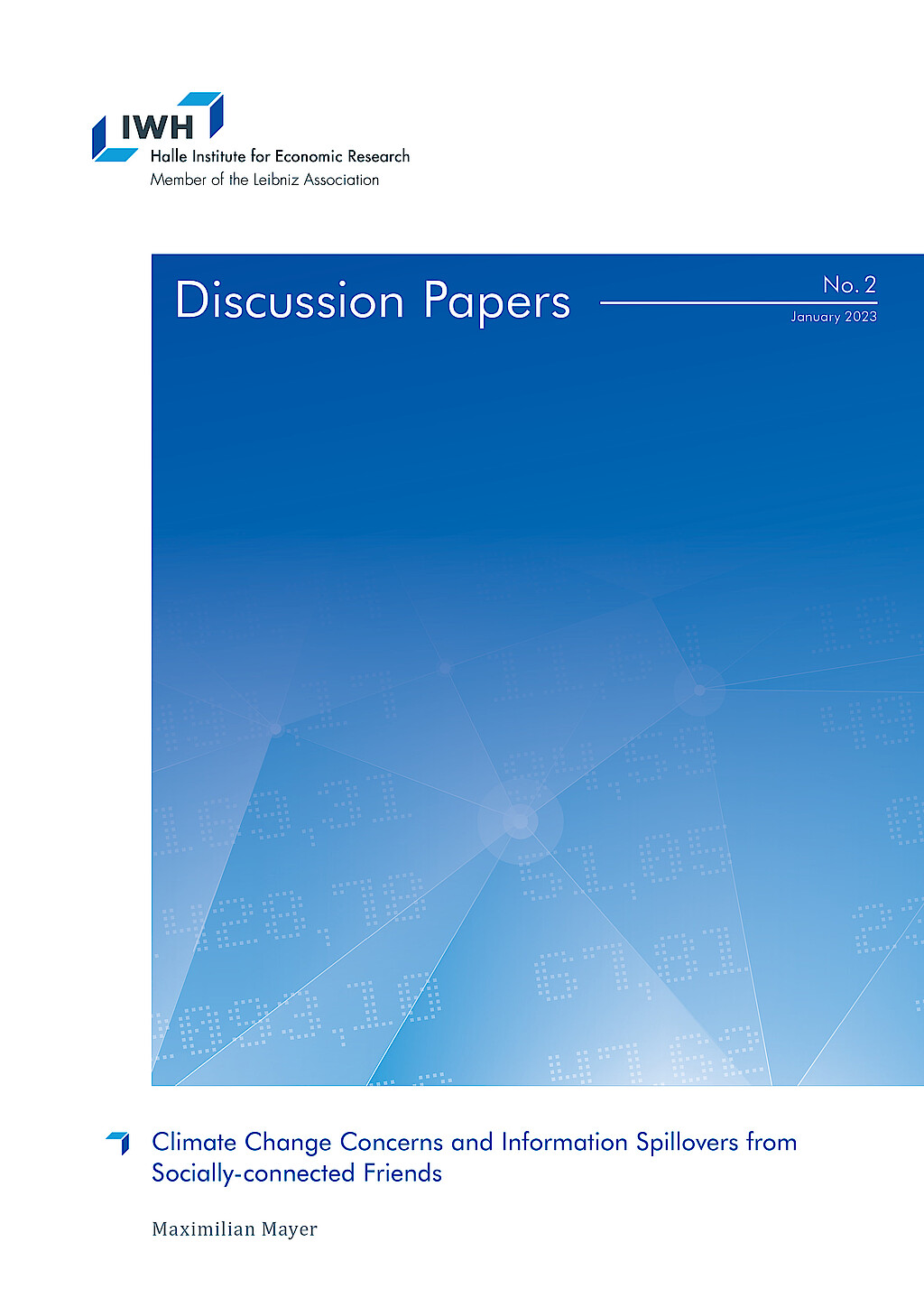
Climate Change Concerns and Information Spillovers from Socially-connected Friends
in: IWH Discussion Papers, Nr. 2, 2023
Abstract
This paper studies the role of social connections in shaping individuals’ concerns about climate change. I combine granular climate data, region-level social network data and survey responses for 24 European countries in order to document large information spillovers. Individuals become more concerned about climate change when their geographically distant friends living in sociallyconnected regions have experienced large increases in temperatures since 1990. Exploring the heterogeneity of the spillover effects, I uncover that the learning via social networks plays a central role. Further, results illustrate the important role of social values and economic preferences for understanding how information spillovers affect individual concerns.
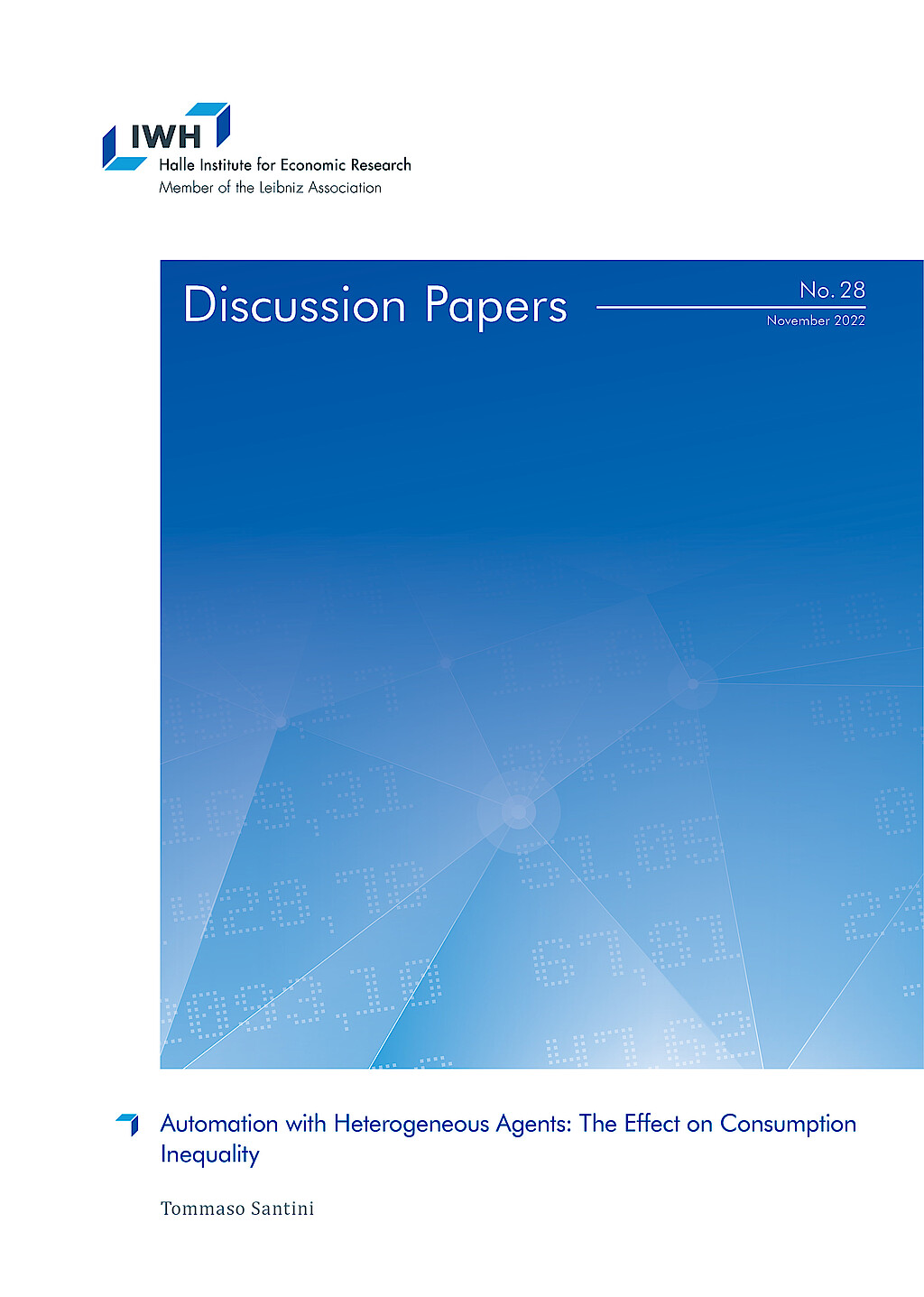
Automation with Heterogeneous Agents: The Effect on Consumption Inequality
in: IWH Discussion Papers, Nr. 28, 2022
Abstract
In this paper, I study technological change as a candidate for the observed increase in consumption inequality in the United States. I build an incomplete market model with educational choice combined with a task-based model on the production side. I consider two channels through which technology affects inequality: the skill that an agent can supply in the labor market and the level of capital she owns. In a quantitative analysis, I show that (i) the model replicates the increase in consumption inequality between 1981 and 2008 in the US (ii) educational choice and the return to wealth are quantitatively important in explaining the increase in consumption inequality.

The Value of Firm Networks: A Natural Experiment on Board Connections
in: SAFE Working Papers, Nr. 269, 2022
Abstract
We present causal evidence on the effect of boardroom networks on firm value and compensation policies. We exploit a ban on interlocking directorates of Italian financial and insurance companies as exogenous variation and show that firms that lose centrality in the network experience negative abnormal returns around the announcement date. The key driver of our results is the role of boardroom connections in reducing asymmetric information. The complementarities with the input-output and cross-ownership networks are consistent with this channel. Using hand-collected data, we also show that network centrality has a positive effect on directors’ compensation, providing evidence of rent sharing.
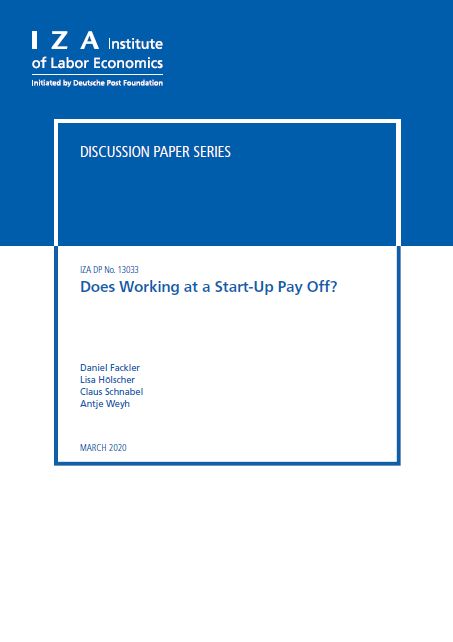
Automation, Globalization and Vanishing Jobs: A Labor Market Sorting View
in: IZA Discussion Paper, Nr. 13267, 2020
Abstract
We show, theoretically and empirically, that the effects of technological change associated with automation and offshoring on the labor market can substantially deviate from standard neoclassical conclusions when search frictions hinder efficient assortative matching between firms with heterogeneous tasks and workers with heterogeneous skills. Our key hypothesis is that better matches enjoy a comparative advantage in exploiting automation and a comparative disadvantage in exploiting offshoring. It implies that automation (offshoring) may reduce (raise) employment by lengthening (shortening) unemployment duration due to higher (lower) match selectivity. We find empirical support for this implication in a dataset covering 92 occupations and 16 sectors in 13 European countries from 1995 to 2010.
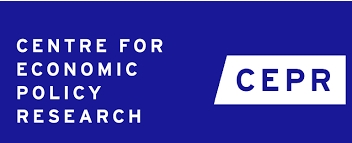
The Value of Firm Networks: A Natural Experiment on Board Connections
in: CEPR Discussion Papers, Nr. 14591, 2020
Abstract
This paper presents causal evidence of the effects of boardroom networks on firm value and compensation policies. We exploit exogenous variation in network centrality arising from a ban on interlocking directorates of Italian financial and insurance companies. We leverage this shock to show that firms whose centrality in the network rises after the reform experience positive abnormal returns around the announcement date and are better hedged against shocks. Information dissemination plays a central role: results are driven by firms that have higher idiosyncratic volatility, low analyst coverage, and more uncertainty surrounding their earnings forecasts. Firms benefit more from boardroom centrality when they are more central in the input-output network, hence more susceptible to upstream shocks, when they are less central in the cross-ownership network, or when they have low profitability or low growth opportunities. Network centrality also results in higher directors' compensation, due to rent sharing and improved executives' outside option, and more similar compensation policies between connected firms.










